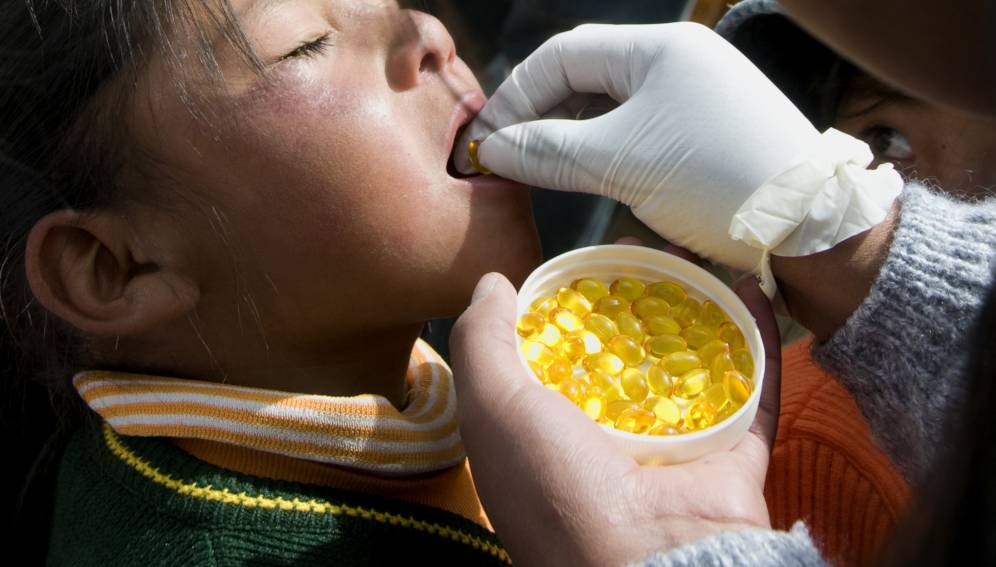[ISLAMABAD] High doses of vitamin D3 (cholecalciferol) can help treat severe child malnutrition, suggesting health officials should consider upgrading standard treatments.
A clinical trial conducted in Pakistan’s Punjab province found that vitamin D3 supplements added to regular treatment for malnutrition led to significant improvements in a group of 185 malnourished children aged 2‒58 months. The eight-week treatment led to gains in weight for height, as well as improvements in motor skills and learning abilities.
A second group of 92 malnourished children, also under standard treatment but placed on placebos instead of vitamin D3 supplements, showed far less improvement than the first group, according to the study published this month (May) in The American Journal of Clinical Nutrition by researchers from the University of the Punjab (PU) in Lahore, and the Queen Mary University of London (QMUL).
“The results of adding high-dose vitamin D3 to the regular treatment for malnutrition are a first, and not previously studied,” says Aida Girma-Melaku, UNICEF representative in Pakistan. She says that the standard treatment given to malnourished children in different countries is a high-energy food paste which has only modest amounts of vital micronutrients such as vitamin D3.
“Pakistani health authorities should now join hands with the country’s health educational institutes and private sector to address child malnutrition”
Atif Habib, Aga Khan University
Cholecalciferol, called the ‘sunshine vitamin’ because it is naturally made by the skin on exposure to ultraviolet rays in sunlight, is also found in animal-origin foods like cheese, fish and eggs. It plays a key role in the absorption of calcium and phosphorous, which are essential for the building of bones and teeth.
Adrian Martineau, professor at QMUL and an author of the study, says the results carry lessons for developing countries in Africa, Asia-Pacific and other regions which are home to an estimated 20 million malnourished children.
Atif Habib, assistant professor of paediatrics and child health at Aga Khan University in Pakistan, tells SciDev.Net that the results of the study are an eye-opener.
“Pakistani health authorities should now join hands with the country’s health educational institutes and private sector to address child malnutrition,” says Habib, a lead member of the country’s National Nutrition Survey 2018 launched in February.
A third of Pakistani children are underweight, nearly 44 per cent are stunted, 15 per cent suffer from wasting and half are anaemic, according to the National Nutrition Survey 2011.
This article was originally published on SciDev.Net. Read the original article.
